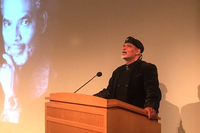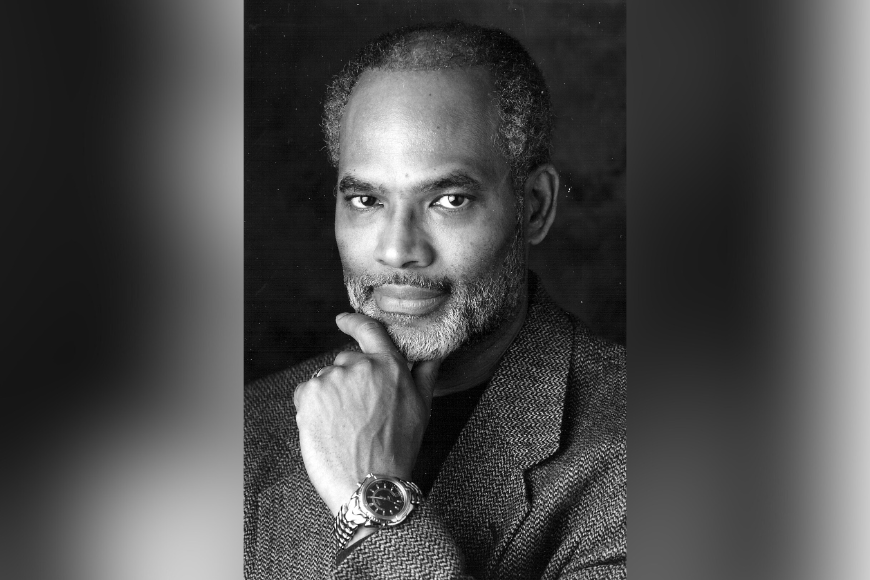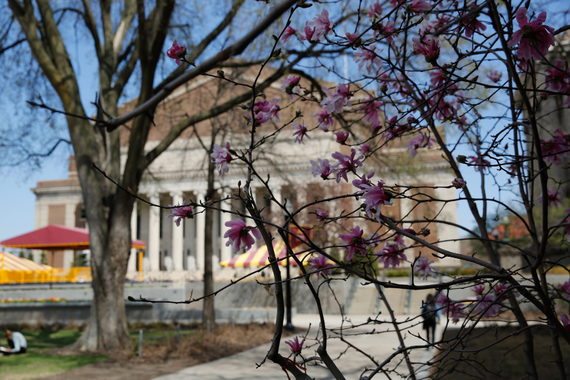Outstanding Achievement Award: John S. Wright
CLA congratulates Dr. John S. Wright as a recipient of the University’s Outstanding Achievement Award—conferred upon graduates who have attained unusual distinction in their chosen fields or professions or in public service, and who have demonstrated outstanding achievement and leadership on a community, state, national, or international level.
Recently, Wright was also honored with the college's Alumni of Notable Achievement award, but his long-lasting contributions extend well beyond CLA.

Alumni of Notable Achievement
John Wright (MA ‘71, English; PhD ‘77, American studies), a "pioneering scholar, teacher, and activist," is an impassioned scholar and activist who played a pivotal role in establishing the Department of African American & African Studies at the University of Minnesota, demonstrating a lifelong commitment to research excellence, community engagement, and promoting equity and diversity in academia. Read A Lecture for Life.
Changing the course of history
This year marked the 55th anniversary of the Morrill Hall Takeover. Wright’s leadership was pivotal to the defining, nonviolent action that changed the course of history at the University and in our communities. As a primary leader of the African American Action Committee, Dr. Wright drafted the seven demands that became the framework for negotiations with the administration of President Malcom Moos. These negotiations resulted in creation of the then-named Department of Afro American Studies, with dedicated faculty, curriculum, and budget. It also created the nationally-recognized Dr. Martin Luther King, Jr. Program which advises and supports students as they progress toward goals around pursuing a career, contributing to communities, and strengthening their personal wellbeing.
The protest played a major role in helping the University advance in its purpose and responsibilities as a public land-grant system. The institutional work to fulfill the mission of being accessible, inclusive, and responsive to the ever-changing needs of students, staff, and faculty has been guided by Dr. Wright’s leadership then, since then, now, and in preparation for the future. His courage in 1969 helped launch a defining era of teaching, writing, researching, mentoring, and interfacing with Minnesota’s diverse constituencies.

Remembering the Morrill Hall Takeover
Fifty years ago, in January 1969, 70 black students occupied Morrill Hall on the U’s Twin Cities campus to protest institutional racism and the lack of outreach, support, and culturally relevant coursework for students of color. The takeover, which lasted for 24 hours, was peaceful. And it was powerful, succeeding in changing the campus forever. For one, it spurred the establishment of the U’s African American and Afri-can Studies Department, among the nation’s first.
Professor Emeritus John Wright, who just retired from that very department, was at Morrill Hall as a recent graduate; he’d authored the list of demands presented to the administration on behalf of protesters. Read Remembering the Morrill Hall Takeover.
Purposeful academic leadership
After graduating in engineering, Dr. Wright focused his studies on Black history, culture, and challenges faced by individuals of color and multiracial communities in Minnesota, the United States, and worldwide. He received a master’s degree in English and American Literature from the University, then worked at Carleton College, leading a new African & Afro-American Studies Program there. These curricula and teaching techniques were brought to CLA when Wright returned as a professor. He received a PhD in American Studies & the History of African Peoples, an achievement that permitted him to serve as inaugural co-chair, and subsequently chair, of the Department of Afro American Studies. He was an early director of the MLK Program because he understood the realities for students of color who live, learn, and dream in a white-majority institution. He championed the benefits experienced by students when dedicated counselors and advisors help them move forward within an empathetic, supportive community.
Wright is also world-class educator–recognized as such in 1999 by winning the Horace T. Morse/University of Minnesota Alumni Association Award for Outstanding Contributions to Undergraduate Education, and by being inducted into the University’s Academy of Distinguished Teachers. He was an extensive researcher of Black history, culture, and the arts in archives around the world and made public audiences aware of his findings via articles, books, presentations, performances, films, and exhibits.
His role as a mentor to staff, faculty, graduate assistants, students, other University faculty, and organizations in all of Minnesota’s sectors has had a lasting impact. His former student mentees now teach courses in the current African American & African Studies Department, curate the Givens Collection, and work in an array of dynamic settings, having been taught/guided by Wright and others.




